Lauratu Abdulsalam, Communication and Media Adviser, British Council Programmes
Email: laureabdul98@gmail.com
My research interest is on journalism safety and similar other interest.
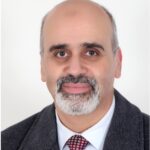
Farid Abudheir, Assistant Professor, An-Najah National University
Email: farid@najah.edu
The fields I am interested in are: Media ethics, Palestinian media, media and Muslim movements, safety of journalists, social media and Palestinian youth.
Heather Anderson, Senior Lecturer, Griffith University
Email: h.anderson@griffith.edu.au
I am a journalism educator and interested in the area of journalism safety.

Gifty Appiah-Adjei, Senior Lecturer, University of Education, Winneba
Email: gaadjei@uew.edu.gh
My research focus for the year is Digital Insecurity of Journalists in Ghana; Journalism Education. media capture, journalism and the SDGs. My research interest includes Security of Journalists; Press Freedom; Ethnic Journalism; Digital Journalism; Media and SDGs; media capture; Conflict-Sensitive Reporting and on-the Job Trauma; Media and Democracy; Media and Gender; Information Disorder; and Digital Inclusion and the Minorities.
Gregory Armstrong, Professor, University of Melbourne
Email: g.armstrong@unimelb.edu.au
I’m a global health researcher with a focus on mental health and suicide prevention, and I have a program of research looking at responsible reporting of suicide in the South Asia region.
Solace Asafo, Lecturer, University of Media, Arts and Communication
Email: sasafo@gij.edu.gh
Journalism training schools curriculum and journalism safety.
Elizabeth Owusu Asiamah, PhD Student, University of Education, Winneba
Email: eoasiamah@uew.edu.gh
Research explores Trauma Literacy and Journalism education in Ghana by specifically investigating the extent at which trauma reporting is integrated into the Journalism curriculum of two universities. The qualitative study employed interviews with Journalism educators and news editors; focus group discussions with undergraduate final year students and document analysis of selected Journalism courses from the two universities. Findings of the study indicated that student-journalists were unprepared for trauma reporting in practice mainly because the journalism curriculum does not address the phenomenon.
Klas Backholm, Senior University Lecturer, Åbo Akademi University
Email: klas.backholm@abo.fi
My research areas include the psychological wellbeing of journalists after work-related crisis exposure or harassment, and best practices for crisis journalism and communication in the digital media landscape.
Kiyya Baloch, Freelance Journalist
Email: kiyya.baloch@protonmail.com
Kiyya Baloch is a freelance journalist and researcher from Pakistan. He has previously covered religious extremism, Baloch militancy, security, politics, and human rights for world leading media outlets, including The Guardian, Al Jazeera, The Economist, Diplomat Magazine, Radio Free Europe/Radio Liberty among others.
Marta-Milena Barrios, Independent Researcher
Email: info@martamilenabarrios.com
My research has consistently highlighted the challenges journalism faces in Colombia: how journalists go from risk to resilience in their daily practice; the many faces self-censorship adopts while the violence persists in the country; and analyzed the journalists’ role performance during current Colombia’s post-conflict with the FARC guerrilla group, a period full of security challenges for the reporters. Also, my research interests have focused on the threats and harassment journalists receive online, particularly the role of Twitter in slandering journalists.
Soumaya Berjeb, Assistant Professor, Institute of Press and Sciences of Information
Email: souma_tn@yahoo.fr
The Digital Safety issue was the subject of considerable interest of the Tunisian media in the last few years. “Digital Safety” has been discussed by media, especially during the elections and the political campaigns, which generates the confidentiality data threats and the emergence of common misconduct on social networks. As their profession requires more confidentiality and ethical treatment, journalists (especially the investigative ones) are not far from different forms of cyber attacks which might threaten their information security and privacy. In addition, the sensitivity of journalist’s sources, particularly in certain security, political and economic files, obliges the journalists to ensure a high level of digital safety; therefore the electronic security issue has put more pressure on Tunisian journalists. Soumaya’s research responds to these issues with the questions of : “How important is the electronic security for Tunisian journalists’ process this last years?” and “Do journalists have professional, practical and legal guarantees to defend their data from cyber-attacks and protect their files from leaks and immoral harassment of hackers?”

Blerjana Bino, Executive Director of Center “Science and Innovation for Development” (SCiDEV)
Email: blerjana.bino@scidevcenter.org
My research expertise focuses on the intersection of media and democracy, including topics such as media for participation, media and information literacy, digital security and journalist’s freedom of expression, and civil society and EU integration. I explore how media can foster democratic participation and accountability while also protecting freedom of speech and the press in the digital age.
Isaac Blacksin, Research Fellow, University of Southern California
Email: blacksin@usc.edu
Isaac Blacksin is a media theorist and an ethnographer of military conflict. His research examines the politics of representation and the practice of journalism in conditions of violence.
Diana Bossio, Associate Professor, Swinburne University
Email: dbossio@swin.edu.au
Diana researches journalist’s safety and wellbeing practices in online and social media environments
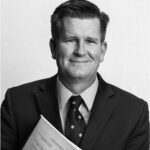
Edward Carter, Professor of Communications, Brigham Young University School of Communications
Email: ed_carter@byu.edu
My research focuses on international human rights law protections for journalism. Specifically, I have written about Article 19 of the International Covenant on Civil and Political Rights as well as its authoritative interpretation by the UN Human Rights Committee, General Comment 34, as applied to reporter’s privilege, combating impunity for attacks on journalists and related issues.
Barış Çoban, Head of Communication Sciences Department, Dogus University
Email: bcoban@dogus.edu.tr
Barış Çoban is a professor in the Communication Sciences Department, Doğuş University, Turkey. His research interests include alternative media, alternative journalism, surveillance and safety of journalists.
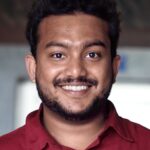
Neerej Dev, Assistant Professor, Department of Media Studies, St. Joseph’s College Devagiri, India
Email: neerejdev@gmail.com
Drawing from his multidisciplinary background in media and politics, Neerej’s research within the scope of journalism safety and impunity explores the intersection of digital politics and online misinformation. Focusing on the lived realities of journalists within the emerging digital landscapes, his work critically investigates the dynamics of digital identities, safety threats, and systemic impunity within the context of journalistic practice.

María Ángeles Chaparro Domínguez, Associate Professor, University Complutense of Madrid
Email: ma.chaparro@ucm.es
One of my lines of research is media freedom and standards. I am also directing a PhD about verbal violence against Spanish women journalists on Twitter.
Gary Dickson, Research Fellow at Centre for Media Transition, University of Technology Sydney
Email: gazzy.d.mail@gmail.com
Gary’s research focuses on building industry data in order to inform policy solutions to support public interest journalism, with a particular focus on local and regional news.
Carmen Draghici, Professor, City, University of London
Email: carmen.draghici.1@city.ac.uk
Co-author of ‘Killing Journalists is Not Media Regulation: Private Rights, Collective Wrongs and the Impact of Impunity’, (2019) 28(2) Transnational Law and Contemporary Problems, pp. 263–307 (with Lorna Woods). Author of the Draft International Convention on the Safety and Independence of Journalists and Other Media Professionals, promoted by the International Federation of Journalists.
Thomas Durkin, Education Program Director, James W. Foley Legacy Foundation
Email: tom.durkin@jamesfoleyfoundation.org
I develop and update the James W. Foley Journalist Safety Curricula with Marquette University’s Diederich College of Communication, Foley Foundation board members, and other safety experts. Our safety materials are used by instructors at over 30 universities in both the U.S. and Lebanon. I also collaborate with Head Set, LLC, to offer in-person and remote safety sessions utilizing VR technology for journalists with a particular focus on freelancers.
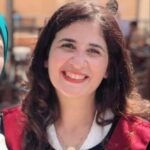
Hanan Elgendi, Assistant Professor, Ahram Canadian University
Email: Hanan162001@yahoo.com
Hanan’s research focuses on the impact of trauma on the physical and mental health of the Egyptian jounalist
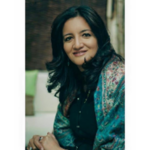
Rasha El-Ibiary, Associate Professor and Chair of the Political Mass Media Department, Faculty of Economics and Political Science, Future University in Egypt
Email: rousha@aucegypt.edu
Rasha El-Ibiary (PhD. Newcastle University, 2006) is an Adjunct Associate Professor, Journalism and Mass Communication Department, The American University in Cairo. She is specialized in the thematic intersections of media and politics, such as journalists’ utilization of media; mediated gendered identities; cultural geography and geopolitics; imagery and memory; the politics of fear; media policies; censorship; and public diplomacy, among others. She is also an editorial board member with several academic journals, including Sage Open, the Journal of African Media Studies (JAMS), and Frontiers in Communication. Her work was published in International Communication Gazette, Digital Journalism, Global Media and Communication, the International Journal of Communication, Kome Journal, Communication and Society, Global Media Journal, and Arab World Geographer.
Nuhu Gapsiso, Professor, University of Maiduguri
Email: nuhugapsiso@gmail.com
Journalism safety, impunity and national security are two critical but often conflicting aspects. While journalists play a vital role in uncovering the truth and safeguarding democratic principles, ensuring their safety becomes paramount for the free flow of information. Balancing national security concerns with preserving press freedom is essential to maintain a vibrant democracy that protects both citizens and journalists.
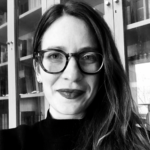
Ricki-Lee Gerbrandt, Media Lawyer & PhD Researcher (Law), University of Cambridge
Email: rlg59@cam.ac.uk
Ricki-Lee is a lawyer and legal scholar focused on constitutional, media, freedom of expression and human rights law in the digital era. Ricki-Lee’s research examines the regulation of online speech, online abuse and disinformation targeting journalists, and media law. She is a researcher at the Lauterpacht Centre for International Law and Centre for Intellectual Property and Information Law.
Mariam Gersamia, Founder of Media and Communication Educational and Research Center Media Voice
Email: mgersamia@mcerc.ge
Areas of interest: 1. Assessment of media environment in Georgia: threats and supportive instruments; 2. Effects of disinformation and propaganda; 3. Solidarity journalism during the crisis and wartime
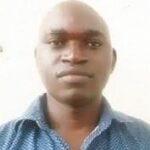
Verlumun Celestine Gever, Lecturer, University of Nigeria
Email: encyclopeadia100@gmail.com
I am interested in journalists’ safety, mental health of journalists, visual communication and multimedia. I have also conducted a number of studies on public health promotion from the perspective of communication.

Greg Gondwe, Lecturer, California State University – San Bernardino and Harvard
Email: ggondwe@law.harvard.edu
Dr. Gregory Gondwe, an Assistant Professor of Journalism Studies and a distinguished Harvard Faculty Associate, directs his scholarly gaze toward the dynamic landscape of emerging media trends within sub-Saharan Africa. His academic pursuits encompass a profound exploration of the symbiotic relationship between new media technologies and the realm of Journalism. Within this context, Dr. Gondwe delves into the intricate domain of social media’s utilization in Sub-Saharan Africa, with a keen focus on the mechanisms through which individuals cultivate online communities, navigate the formidable terrain of government censorship, and negotiate the intricate intricacies of algorithmic biases.
Summer Harlow, Professor, Jack J. Valenti School of Communication, University of Houston
Email: sharlow@central.uh.edu
Summer researches the digital insecurities (with real-world/physical consequences) that journalists in Latin America face and also the coping strategies journalists use to respond to social media threats.

Jennifer Henrichsen, Assistant Professor, Washington State University
Email: jennifer.henrichsen@wsu.edu
Jennifer R. Henrichsen is an Assistant Professor at the Edward R. Murrow College of Communication at Washington State University. She is also an Affiliated Fellow at the Information Society Project at Yale Law School. She received her Ph.D. from the Annenberg School for Communication at the University of Pennsylvania. Henrichsen’s research examines how adversaries exploit weaknesses in the spread of information across organizations and institutions to contaminate the information ecosystem and to erode trust in knowledge systems. Specifically, she assesses how these and other challenges – from state and corporate surveillance to physical and digital attacks against the media – are creating an epistemic crisis for journalism. Henrichsen has published 20 peer-reviewed journal articles, book chapters, and reports and has received numerous fellowships, including from Yale, Columbia, and the University of Fribourg.
Aurora Herrera, Early Career Researcher, Media Institute of the Caribbean
Email: Aurora.herrera@gmail.com
My research focuses on media freedom and the safety of journalists in the Caribbean.
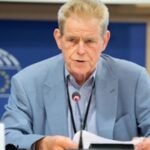
William Horsley, International Director of the Centre for Freedom of the Media (CFOM)
Email: w.f.horsley@sheffield.ac.uk
William focuses on the evolution of states’ compliance with international legal standards and norms concerning media freedom and journalists’ safety; methodologies of monitoring, reporting and promoting compliance; development of soft law and policy instruments such as the UN Action Plan, Council of Europe Implementation Strategy for CM Rec (2016)4 and the Commonwealth Principles on the role of media in good governance and the rule of law.
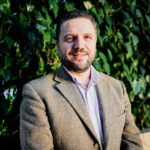
Abit Hoxha, Assistant Professor, University of Agder
Email: abit.hoxha@uia.no
My primary research area is news production in conflict and safety of journalists is one of the more important factors influencing the process of news production. My research extends to safety of journalists, media and conflict, peace and war, post-conflict journalism, dealing with the troubled past and media and democracy.
Sallie Hughes, Professor and Chair, Journalism and Media Management, University of Miami, School of Communication
Email: shughes@miami.edu
I am incoming chair of the Department of Journalism and Media Management at the University of Miami. My interests are in how journalists resist and retreat in the context of multiple forms of violence and risk, but especially in how they attempt to cope and maintain their overall wellbeing. I approach these questions from a sociological standpoint. I have been working on research with Mexican journalists and scholars since 1999. Current projects include creating a predictive model of subjective wellbeing with colleagues in the Worlds of Journalism Mexico group and journalism safety education during weather disasters with doctoral student Kyle Walkine.
Jendele Hungbo, Professor, KolaDaisi University, Ibadan
Email: jendelehungbo@yahoo.com
Jendele Hungbo is a Professor of Journalism and Media Studies in the Department of Mass Communication, Koladaisi University, Ibadan. He holds a Ph.D. from the University of the Witwatersrand, Johannesburg, South Africa (2012). His current research is on Interactive Media and the Performance of Identities in Nigeria and South Africa.

Shabir Hussain, Professor, Bahria University Islamabad
Email: shasain2@gmail.com
Dr. Shabir Hussain is a professor of media studies at Bahria University in Islamabad, Pakistan. Currently, he holds the position of a visiting research fellow at Cardiff University, where he is focusing on exploring the intersections among populism, hate speech, and disinformation in the digital political discourse of South Asia. Earlier, he completed a project delving into conflict journalism practices in Pakistan and Afghanistan.
Dr. Hussain has made contributions to the field, with extensive publications on conflict journalism, media freedom, media-policy interaction, and the online harassment of journalists in peer-reviewed journals. He works on all aspects of conflict journalism and borrows significantly from aligned academic areas like political communication, peace communication and sociological approaches to journalism. A noteworthy aspect of his work lies in its emphasis on de-westernized perspectives. For instance, during his collaboration with conflict journalists in South Asia, particularly in Pakistan and Afghanistan, he identified novel strategies for practicing peace journalism, informed and guided by the theories and philosophies of the social sciences within a non-western context. The fusion of theory and practice in his work offers a nuanced understanding of the intricate relationship between media and conflicts.
His collaboration with Dr. Jake Lynch at the University of Sydney represents a valuable initial exploration into this line of thinking. In the earlier stages of his career, Dr. Hussain worked with leading media organizations in Pakistan as a reporter and documentary producer. He reported on the Taliban conflict in the border regions of Pakistan and Afghanistan for both national and international media. The experiences gained from reporting on terrorism, sectarianism, and ethno-political conflicts in these regions are closely reflected in his published research. Dr. Hussain remains open to the exchange of ideas and active participation in academic and journalistic debates concerning the conflicted regions of South Asia
Asma Jaghman, PhD Student, Rutgers University- New Brunswick
Email: Asma.Jaghman@rutgers.edu
I am interested in studying journalist safety in war zones. Particularly focusing on the factors that influence states’ adherence to international norms regarding the safety of journalists.
Abubakar Jibril, Senior Lecturer, University of Abuja
Email: jibril.abubakar@uniabuja.edu.ng
My PhD thesis is on the safety of journalists reporting violent conflicts in insurgency-prone northeast Nigeria. Additionally, I have published three journal articles and a book chapter on safety of journalists
Rachael Jolley, Lecturer in MA Journalism, Cardiff University
Email: rjolley@cardiff.ac.uk
Rachael’s specialisms include: global journalism, media freedom, vaccine hesitancy, freedom of expression, local news trends, public attitudes & public health, immigration & identity, digital security/surveillance.
Vanessa Higgins Joyce, Associate Professor, Texas State University
Email: Vhjoyce1@txstate.edu
I am interested in the increasing threats to women journalists on social media. I am also interested in how changes on labour relationships is affecting access to help by these journalists. I am interested in research aiming at preventing such threats.
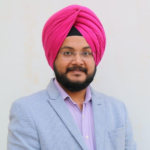
Rubal Kanozia, Assistant Professor, Department of Mass Communication and Media Studies, Central University of Punjab, Bathinda India
Email: indianrubal@gmail.com; rubal.kanozia@cup.edu.in
Dr. Rubal Kanozia is multifaced personality, A former Journalist, Broadcaster, Media Educator, Researcher, Fact-Checker and Fact-Checking Trainer presently working as Assistant Professor (Senior Scale) at the Department of Mass Communication and Media Studies, Central University of Punjab, Bathinda India. Before joining CUP, he worked as Head of the Department of Journalism and Mass Communication, Kanya Maha Vidyalaya, Jalandhar and Course in Charge of B.VOC in Photography and Journalism. He has done Ph.D. in Environment Communication: Challenges and Prospects in Punjab. He has been associated with Dainik Jagran Newspaper, Hindustan times, Times of India, Radio Mirchi, Radio Mantra, All India Radio, Doordarshan and IBN7. His industrial experience is around 10 years, teaching and research experience in media education, training and research is 12 years.
He is also a trainer of Fact Checking Initiative with Google News Initiative and Factshala a media literacy initiative by Data Leads and First Draft, USA. He has attended many international conferences of reputed bodies of media education-research and fact-checking in UAE, Malaysia, France, Philippines, Taiwan, Canada and the United States of America.
Samiksha Koirala, Assistant Professor, North South University
Email: samiksha.koirala@northsouth.edu
I am interested in researching the intersections of gender and media, focusing on topics such as digital harassment and the safety of women journalists. My aim is to contribute to the development of safe and more inclusive and equitable media environments that prioritize the well-being and protection of marginalized groups.
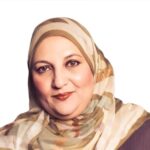
Sahar Khamis, Associate Professor, Department of Communication, University of Maryland, College Park.
Email: skhamis@umd.edu
Sahar is an expert on Arab and Muslim media. Dr. Khamis holds a Ph.D. in Mass Media and Cultural Studies from the University of Manchester in England. She is a former Mellon Islamic Studies Initiative Visiting Professor at the University of Chicago. She is the co-author of the books Islam Dot Com: Contemporary Islamic Discourses in Cyberspace (Palgrave Macmillan, 2009) and Egyptian Revolution 2.0: Political Blogging, Civic Engagement and Citizen Journalism (Palgrave Macmillan, 2013), and the co-editor of the book Arab Women’s Activism and Socio-Political Transformation: Unfinished Gendered Revolutions (Palgrave Macmillan, 2018).
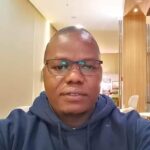
Robert Kituyi, Managing Editor, Journalism Hub East Africa
Email: wanjala.robert@gmail.com
I am an independent journalist and the managing editor of Journalism Hub East Africa. Currently, I am involved in monitoring and documentation of violence against journalists and human rights defenders who are targeted for their work in the Eastern Africa region. Area of interest include safety and protection of journalists and HRDs and issues of impunity, access to public information and data sets by journalists, media independence, freedom of expression, digital safety and protection with a strong intersectionality focus. Previously, I have worked for various media outlets both in Kenya, East Africa and international

Caitlin Knight, Senior Lecturer in Criminology, University of Roehampton
Email: caitlin.knight@roehampton.ac.uk
My research has focused on the complex emotion management journalists that report from conflict situations engage in, specifically genocide, and how this relates to wider professional and organisational expectations.
Roy Krøvel, Professor of Journalism, Oslo Metropolitan University
Email: roy.krovel@oslomet.no
My main research interests are journalism safety, AI in Investigative Journalism and Indigenous Journalism. I am one of the organisers of the annual conference on the safety of journalists at Oslo Metropolitan University.
Barbara Longo-Flint, PhD Researcher, University of Sunderland
Email: barbara.longoflint@research.sunderland.ac.uk
Barbara is studying the impact of abuse and intimidation on investigative journalists: a comparative analysis of media freedom in Italy and the UK, Based on quantitative and qualitative data, this research analyses the threats faced by investigative journalists, encompassing physical, digital, and legal intimidation, and their implications for journalists’ well-being and freedom of expression. The study aims to propose actionable strategies, policies, and mechanisms to enhance journalism safety and protect the freedom of investigative journalists in their pursuit of truth and accountability.
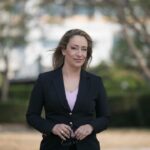
Theodora A. Maniou, Assistant Professor, University of Cyprus
Email: maniou.theodora@ucy.ac.cy
My research focusses on journalism practice and press freedom in different media systems.

Fiona R. Martin, Associate Professor in Online & Convergent Media, The University of Sydney
Email: fiona.martin@sydney.edu.au
I study dialogic media, public service media and digital journalism. I am interested in how journalists develop dialogic skills for engaging audiences on social media and online platforms.
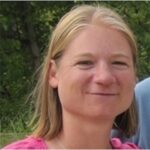
Diana Maynard, Senior Research Fellow, University of Sheffield
Email: d.maynard@sheffield.ac.uk
Dr Maynard’s main research interests are in practical, multidisciplinary approaches to automated text and social media analysis, in a wide range of fields including journalism, human rights, law, politics, sustainability and the environment. She is currently working on various projects based around the detection and analysis of online hate speech and abuse against journalists and politicians, focusing in particular on gender-based issues, as well as investigating the online dissemination of misinformation.

Tamsin Mitchell, ESRC Postdoctoral Researcher, Centre for Freedom of the Media, University of Sheffield
Email: t.s.mitchell@sheffield.ac.uk
My work explores the intersection between human rights, international relations/ politics and journalism studies. My current research analyses the varied strategies that journalist-human rights defenders use to address violence and impunity, including international human rights law and mechanisms, institutional and other domestic approaches, activism and self-protection, with a focus on Mexico and Honduras.
More generally my research interests include: civil society mobilisation/ activism; transnational advocacy; international human rights law/ norms and institutions; repression; human rights violations; protection/ self-protection of human rights defenders and journalists; freedom of expression; journalism and human rights; journalism and corruption; Latin America; fieldwork in high-risk environments.
Mulatu Alemayehu Moges, Assistant Professor, Addis Ababa University
Email: mulatu_alem@yahoo.com
Mulatu Alemayehu Moges did his Ph.D. in Media and Communication at the University of Oslo in 2017. In Ethiopia, he has extensive media experience. He is currently an assistant professor at Addis Ababa University, where he teaches undergraduate and graduate journalism courses. He has undertaken various studies and developed journalistic guidelines on Ethiopian media and journalism. He’s led a variety of training sessions on various themes. Dr. Mulatu has also worked as a consultant staff member for local and international organizations. His interest is the political economy of the media, freedom of expression, the safety of journalists, and conflict-sensitive reporting. He has been running many research and capacity projects. Currently, he is a coordinator for Norway’s NORPART initiative, which supports Ethiopia’s higher education capability. He is also a researcher for the Decoding Digital Media in Africa Conflict project with the support of the Norwegian Research Council.
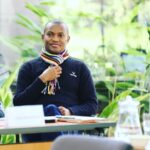
Benjamin Muindi, Lecturer, Zetech University
Email: benmuindi@gmail.com
Benjamin Muindi is a Kenyan journalist turned academic. He is an alumnus of the University of Leeds class of 2014 in International Journalism. He completed his Ph.D. in Journalism Studies from Daystar University in Kenya in 2021. His dissertation explored the lived experiences of foreign and local journalists in Kenya reporting terrorism. He has a decade of experience in media practice mainly working for the mainstream media in Kenya at the Nation Media Group – the biggest media outfit in East and Central Africa. Benjamin delights in teaching journalism but is also an experienced researcher published in peer reviewed academic spaces.
Abdalle Mumin, Somali Journalists Syndicate
Email: abdalle.mumin@sjsyndicate.org
The Somali Journalists Syndicate monitors, documents and speaks out on the violations against journalists in Somalia. Our research includes documenting and publishing issues affecting journalists safety and security and advocating for end of impunity for crimes against journalists. We work with both in-house and external lawyers to bring cases to local courts as well as international mechanisms.
Samiaji Bintang Nusantara, Head of Department of Digital Journalism, Universitas Multimedia Nusantara
Email: samiaji.bintang@umn.ac.id
Samiaji Bintang Nusantara is a head of the Digital Journalism Department at Universitas Multimedia Nusantara. His research focuses on exploring the shifting environment in public journalism in the era of digital media, including journalist safety and media freedom.
Rosemary Nyaole-Kowuor, Senior Lecturer/Researcher, Daystar University
Email: rnyaole@daystar.ac.ke
Rosemary research focuses on a personal reflection of observations, daily occurrences, and experiences as a media trainer/consultant. Rosemary focuses is the media’s role as a society watchdog and draws attention to the implication of market economy on media’s role as the society’s watchdog. Media practitioners, like everyone else, have to break even in their dealings. How then do they balance their profit motive with the society watchdog role?
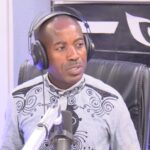
Kirsten Nicolas Nzungu, Journalist and Assistant Lecturer, Voice of Hope Radio/Hope Africa University
Email: research1.kirsten@gmail.com
My research interests are on: the protection of human rights defenders and journalists, the right to freedom of expression, the safety of journalists, conflict-sensitive reporting, the protection of civil society, peace building, and humanitarian law.
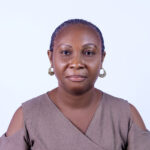
Ngozi Omojunikanbi, Lecturer, University of Port Harcourt
Email: Ngozi.omojunikanbi@uniport.edu.ng
My research interest is in crisis communication, journalism and media, health communication. I have published in journals (locally and internationally) and have contributed chapters in edited books. I am open for collaboration with colleagues with the same area of research interest.
Jeremaiah Opiniano, Program Lead, MA in Journalism program, University of Santo Tomas
Email: jmopiniano@ust.edu.ph
I and colleagues (undergraduate and graduate studies) have done studies on: emotional well-being of journalists, COVID-19’s impact on journalists’ well-being, and stakeholder action on journalist safety.
Kristin Orgeret, Professor, OsloMet University
Email: kristin.orgeret@oslomet.no
Research on journalism, freedom of speech and media’s role in war and conflict. Related to the safety of journalists: gender perspectives, digital safety and the role of media organizations, governments, and civil society in protecting the safety of journalists
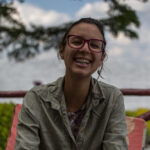
Fabíola Ortiz dos Santos, PhD candidate, Duisburg-Essen University
Email: fabiola.ortizsantos@gmail.com
My research looks at how international organisations operate when promoting media initiatives in (post)conflict scenarios and in which way and through which means they foster media development projects in peacekeeping/-building. The question of agency in journalism particularly in peacebuilding contexts remains a topic of debate as well as how and when to integrate media into the overall peacebuilding strategies.
Vipula P C, PhD Student, University of Hyderabad
Email: vipulapc88@gmail.com
I seek to explore various aspects and strategies to address gendered dimensions of violence against journalists and the framing of legal protection mechanism. Focusing on lived realities of journalists in the current digital landscape my research examines the aspects of safety, harassment and gendered abuse in digital journalistic field.
Nikos Panagiotou, Professor, Peace Journalism Lab, School of Journalism and Mass Communications, Aristotle University of Thessaloniki
Email: npanagiotou@gapps.auth.gr
Organised special training that takes place every year, published a book about it while we have launched an international center regarding safety for journalists and media professionals

Clémence Petit, PhD Student, UCLouvain
Email: clemence.petit@uclouvain.be
My research project aims to establish a typology of the various forms of violence that journalists encounter in the French-speaking region of Belgium. Another objective is to describe the coping and response mechanisms that journalists adopt when dealing with such violence, and to examine how this violence poses a threat to the practice of journalism and, consequently, to democracy.

Sreelakshmi Pradeep, Post Graduate Student, Christ (Deemed to be University), Bangalore
Email: sreelakshmi.pradeep@mamcs.christuniversity.in
The area of research that I am working on is “Analysing the Online Harassment faced by journalists in India”. This study focuses on the kinds of online harrasment faces by journalists/media professionals through different online platforms and what are their reaction to such harassments and threats.
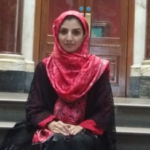
Monisa Qadiri, Senior Assistant Professor, Islamic University of Science & Technology
Email: monisa.qadri@islamicuniversity.edu.in
My current interests include social media analysis and interventions of AI in understanding media content and audiences. I am also interested in film studies and discourse analysis.

Courtney Radsch, Postdoctoral Fellow, UCLA Institute for Technology, Law & Policy
Email: cradsch@gmail.com
My research focuses on the nexus of technology, media and rights, with a focus on media sustainability in the Global South, state-aligned influence operations, AI, and platform governance. Grounded in empirical research, her work explores platformazation, regulatory interventions to address power dynamics between platforms and the news industry, disinformation/propaganda and healthy information ecosystems, and online harassment and extremism.
Anna Ross, Post Doctoral Researcher, University of Melbourne
Email: anross@unimelb.edu.au
Negative stereotypes of people with complex mental illness are often overrepresented and perpetuated in the news, including stereotypes about violence, dangerousness and unpredictability. My research focuses on improving the balance and accuracy of news coverage of people with complex mental illness in the context of violence and crime. My research ultimately aims to reduce stigma and discrimination towards people living with complex mental illness.
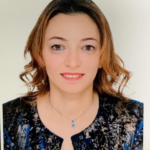
Miral Sabry AlAshry, Vice Dean for Community Service and Environmental Development, Future University in Egypt
Email: Miral_sabry@yahoo.com
My research interests include Fact-checking, conflict zone, government–media relationships, and the implementation of laws in the media systems of Middle East countries with developing democracies and media realities under different political systems
Rainbow Sackey, PhD Student, University of Education, Winneba
Email: rainbowsackey@gmail.com
I am am an early career researcher who is working on a paper on trauma reporting and journalism curriculum in Ghana. It focuses on examining the journalism curriculum in Ghana to see if there are courses on trauma reporting, the perspective of editors and journalism educators on trauma reporting. This is needed within the Ghanaian context because journalism are exposed to traumatic conditions in their daily routines.
Sanem Şahin, Senior Lecturer, University of Lincoln
Email: ssahin@lincoln.ac.uk
Sanem’s research interests include Peace and Conflict reporting, refugee journalists, human rights and professional roles.

Grisel Salazar, Professor, Iberoamerican University
Email: maria.salazar@ibero.mx
In contexts of political violence and institutional fragility, how can we account for the resilience of critical newspapers? While the watchdog function of the press has been extensively studied in developed countries, research on this apparent paradox has only recently begun to emerge for developing democracies, where the incentives for producing vigilant journalism are often low or non-existent.
Previous studies have revealed that the presence of support and accompaniment from societal actors is crucial for upholding the watchdog role of print media, even in repressive environments.
Martin Scott, Associate Professor, University of East Anglia
Email: Martin.Scott@uea.ac.uk
I study the international politics of media freedom, including an evaluation of the Media Freedom Coalition. This is part of my wider research agenda examining the intersection of media studies and development studies.
Florence Namasinga Selnes, Post-doctoral Researcher, Oslo Metropolitan University
Email: florencn@gmail.com
I research about issues related to press freedom, and journalists’ safety. One of my ongoing research projects is about gendered harassment of women in the media in East Africa.
Anjuli Shere, DPhil Researcher/Research Fellow, University of Oxford/Harvard University
Email: arkshere@outlook.com
In recognition of a clear absence of literature accessible to the press on how to recognise and counter IoT threats to their work and wellbeing, Anjuli’s PhD asked: How can members of the press in democratic countries (the UK, USA, Taiwan and Australia) improve their identification of, protection from, and resilience against threats from the Internet of Things?
To answer this question, her thesis presented a multi-piece toolkit that enables members of the press to identify threats from IoT devices to themselves and their work, and then identify the countermeasures best suited to their context, customisable on numerous levels. This toolkit is intended to be used habitually by members of the media, to determine the specific IoT threats that are most relevant to them, which countermeasures can help, and how to implement them in a sustainable way, that does not compromise the press’ ability to do their jobs.
Elena Sherstoboeva
Email: es22751@essex.ac.uk
Dr Sherstoboeva’s research and expert reviews study media and communication regulation in post-Soviet and other contexts from a human rights law perspective. She mainly aims to investigate the impact of laws and their implementation on freedom of expression and media freedom, including the safety of journalists. Her most recent projects focused on studying these issues in the context of Russia’s war in Ukraine.

Vera Slavtcheva-Petkova, Reader in Global Journalism and Media, University of Liverpool
Email: vpetkova@liverpool.ac.uk
Vera Slavtcheva-Petkova focuses on journalism in Central and Eastern Europe (Bulgaria and Russia in particular), online comments, young people and the media, and journalists’ safety from a comparative perspective. She is the author of Global Journalism: An Introduction (with Professor Michael Bromley, Palgrave, 2018), Russia’s Liberal Media: Handcuffed but Free (Routledge, 2018), Discussing Trump’s America Online: Digital Commenting in China, Mexico and Russia (Palgrave, 2023) and Young People, Media and Politics in the Digital Age (Routledge, 2023).
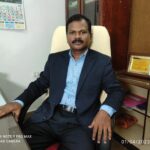
Arulchelvan Sriram, Professor, Anna University
Email: arulchelvansriram@gmail.com
Arulchelvan’s research focuses on Journalists safety, Internal and External Threats Faced by the Journalists, Women Journalists and Safety in India and South Asian contexts.
Olunifesi Suraj, Professor, Department of Mass Communication, University of Lagos
Email: osuraj@unilag.edu.ng
My research is based on freedom of expression, online safety of journalists and media and information & Digital Literacy. I am equally interested in Media Regulation, Internet safety and Disinformation.

Didunloluwa Tella, Lecturer, University of Ibadan
Email: didunloluwa@gmail.com
My research focuses on local/community- based journalists-particularly in Africa and the structures in place to guarantee the smooth execution of their job. If journalists in the urban space are considered ‘endangered species’ then local based journalists can be said to be ‘extinct’. Thus, the enabling laws and policies, functioning environments, and overall welfare of community based journalists should be prioritised. In the sea of alternative digital media choices, the local news must be sustained.
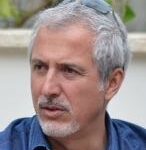
Georgios Terzis, Professor, Brussels School of Governance, Vrije Universiteit Brussel
Email: Georgios.Terzis@vub.be
My primary research focuses on media and security, research and media ethics, media governance, disinformation and media literacy, risk and crisis communication, the role of art and culture in conflict resolution, cultural diplomacy, and the right not to access the internet.
Giuliana Tiripelli, Senior Lecturer in Digital Journalism and Media Discourse, De Montfort University
Email: giulianatiripelli@gmail.com
I analyse the role of journalism on conflicts and social change, how journalism affects the shape of conflicts and social transformation, journalists’ constraints and strategies in conflicts and societies in crisis.
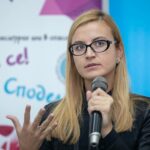
Simona Veleva, Adjunct. Assistant Professor, American University in Bulgaria
Email: sveleva@aubg.edu
Simona researches the following areas: constitutional law and comparative constitutional law, human rights in the digital sphere, freedom of expression online, copyright and privacy rights.
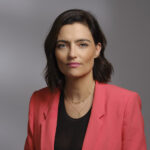
Elodie Vialle, Affiliate, Berkman Klein Center for Internet and Society, Harvard and Senior Advisor, Digital Safety and Free Expression, PEN America
Email: elodievialle@gmail.com
Today, journalists are at the frontline of online abuse attacks. My research is focused on building an “Escalation Channel 2.0” – an individualized support system that will allow to escalate their case within social media platforms and access targeted, hands-on, trauma-informed support.
Alexandra Wake, Associate Professor, RMIT
Email: alex.wake@rmit.edu.au
Research focuses on trauma and journalism.
Joseph Wilson, Lecturer, University of Maiduguri
Email: joeweee2003@gmail.com
My research interests are: new media and communication, media and society, journalism etc
Youngson Ndawana, Early Career Researcher, Liverpool John Moores University
Email: youngs5nd@yahoo.com
My research work intersects media and democracy, journalism culture, social and development communication. These thematic areas encompas the political organisation, representation and elections. Thus, my work straddles across all these strands and demonstrates the interrelated nature of their interaction and how they impact each other.
